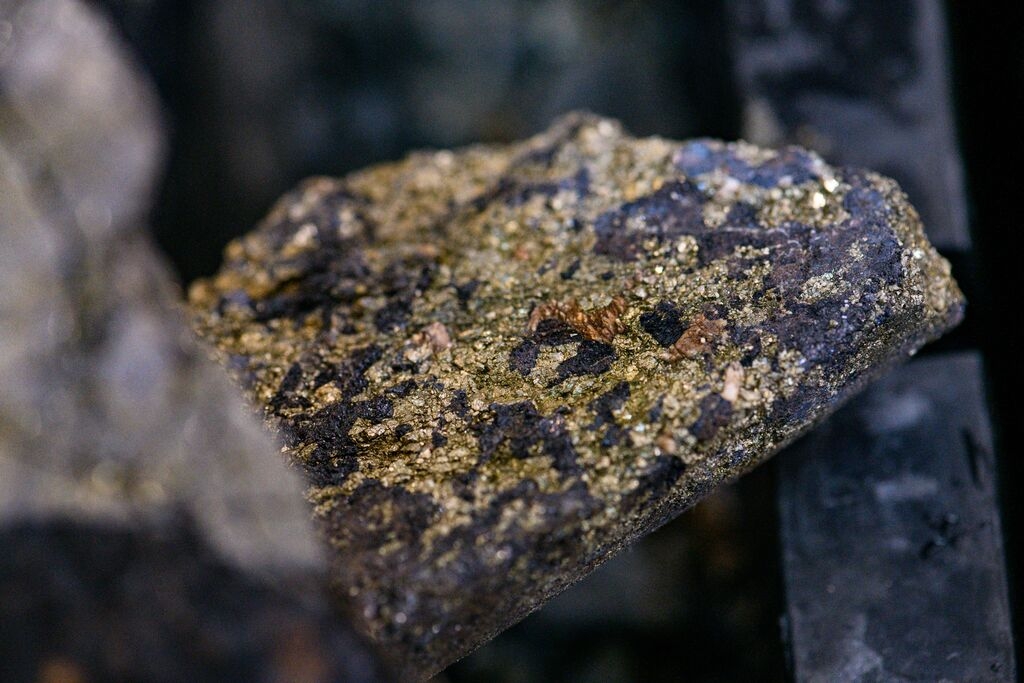RESPONSIBLY PRODUCED PRODUCTS
OUR COMMITMENT TO RESPONSIBLY PRODUCED PRODUCTS
Eldorado is committed to responsibly producing gold and other metals that offer a wide range of uses. Our products advance sustainable development and contribute to economic growth around the world.
PRODUCT RESPONSIBILITY
We support industry-wide efforts to responsibly produce gold and other precious and base metals. We acknowledge and believe that our license to operate requires that all of our activities be conducted in a manner that does not cause, contribute or directly link to human rights abuses or unlawful conduct.
How Our Products Contribute to Society
The metals we produce are part of many of the materials that make up the modern world. Our products create and store value for economies, societies and governments and form an integral part of modern financial systems. They are also critical components of green technologies such as wind turbines, electric cars, solar cells and major infrastructure that are advancing the global transition to a lower-carbon economy. Just as our products contribute to a better world, we are committed to producing them in a way that creates positive economic, social and environmental value for all our stakeholders.
Gold mining is a major economic driver for many countries and jurisdictions around the world. Well-managed, transparent and responsible gold mining can be a major contributor to the socio-economic well-being of host communities through the creation of local employment and business opportunities, as well as investments that seek to benefit community development.

Our products
The metals we produce comprise many of the materials that make up the modern world. They are critical components of green technologies, medical innovations, infrastructure, financial systems, consumer products and much more.

SUPPLY CHAIN
Our supply chain is an important part of the lifecycle of the gold and other metals we responsibly produce. Our contractors are a critical part of our workforce, contributing to areas including exploration, construction and other developments requiring specific resources and expertise, and we work with our suppliers to procure vital supplies for our workforce and operations, such as food, tools, equipment, machinery or bulk materials.
We acknowledge the importance of not only managing risks and implementing internationally recognized best practices in our own operations but also extending these expectations to our contractors and down the supply chain. SIMS requires all contractors and suppliers to be evaluated and conduct their work according to minimum performance standards for health and safety, environmental, social, human rights and other facets of sustainability, including:
- Complying with the the MAC-TSM Prevention of Child and Forced Labour Verification Protocol;
- Having contractors’ and sub-contractors’ sustainability performance evaluated as part of the risk-based selection process;
- Undergoing site-level due diligence, monitoring, reporting and oversight; and
- Having adequate insurance, training, certifications and protocols.
Guided by our corporate commitments, applicable laws and evolving best practices, we are working to develop improved tools and controls to mitigate risks outside of our own operations and progress against the requirements in SIMS. In 2021, we identified an opportunity to broaden the reach of our formal policies and we have established procedures that address supply chain risks. Our Supplier Code of Conduct seeks to align our suppliers with our commitments.
As a result of the review conducted in 2023, we determined that it would be appropriate to formally record our third-party risk management (TPRM) system. With the assistance of an independent qualified third-party, we are in the process of developing the components of the TPRM framework, which we expect to include a responsible sourcing policy and a TPRM procedure. The TPRM procedure, which is informed by the due diligence standards of the Organization for Economic Cooperation and Development, will contain clearly defined actions for identifying, managing, escalating, and reporting cases of environmental, social and governance risks in our supply chain. The TPRM procedure, the scope of which includes human rights and modern slavery risks, is expected to be implemented across all our sites.
Human Rights
As a significant economic and social presence in the jurisdictions and communities where we operate, Eldorado has the potential to substantively impact the human rights of our stakeholders. We acknowledge that we have a responsibility to respect internationally recognized human rights as expressed in the International Bill of Human Rights and the International Labour Organization’s Declaration on the Fundamental Principles and Rights at Work. In doing so, we commit to avoid causing or contributing to adverse human rights impacts and prevent or mitigate those impacts that are directly linked to our operations. To meet our responsibilities in line with the UN Guiding Principles on Business and Human Rights, we have put in place:
- A policy commitment to respect human rights, as expressed in our Human Rights Policy, which was updated and then approved by the Board in 2022. The policy has been informed by the United Nations Declaration on the Rights of Indigenous Peoples;
- A due diligence process to identify, prevent, mitigate and account for how we address our human rights impacts, as outlined in our SIMS, which commits us to regular, third-party human rights impact assessments;
- External assurances in accordance with the WGC’s Conflict-Free Gold Standard (CFGS) for our gold-producing sites; and
- Processes to enable the remediation of adverse human rights impacts that we may cause or contribute to, as outlined in the grievance mechanism section of our latest Sustainability Report.
Employees and contractors are expected to adhere to our Human Rights Policy and associated requirements in SIMS. We expect our business partners, including security providers, contractors and suppliers, to share this commitment to the rights of our workforce, local community members, Indigenous peoples and all stakeholders with whom we interact. This includes respecting the human rights of individuals who require particular attention, including women, children, Indigenous peoples (pertinent to the Lamaque Complex, as directly impacted Indigenous peoples have not been identified at or near our other operations) and other potentially vulnerable or marginalized groups. Our stakeholders are identified through regular stakeholder mapping, and any potential human rights impacts may be identified through local impact assessments, our accessible grievance mechanisms, regular third-party human rights impact assessments and stakeholder engagements. Salient human rights issues are managed principally by site, regional and corporate community relations and legal teams, with oversight from senior management and the Board of Directors.
We communicate our commitment and these expectations through various means, including but not limited to induction and refresher training, on our intranet site, meetings with our Community of Interest Committees, and during the procurement process through our Supplier Code of Conduct. These commitments apply equally across all of our operating jurisdictions and our Human Rights Policy is made accessible in all official languages where we operate.

We are a signatory to the UN Global Compact (UNGC), the world’s largest corporate responsibility initiative. The UNGC’s Ten Principles provide fundamental guidance for our business in the areas of human rights, labour standards, the environment and anti-corruption. We have considered the UNGC’s Principles in the development of our Code of Ethics and Business Conduct, Anti-Bribery and Corruption Policy, Human Rights Policy, Diversity Policy, Social Performance Policy and our Environmental Policy, which are available on our Governance page. We report against each of the Ten Principles in our Communications on Progress.

VOLUNTARY PRINCIPLES ON SECURITY AND HUMAN RIGHTS
The Voluntary Principles on Security and Human Rights (VPSH) is considered the standard for best practice in managing security for extractive industry operations. Our commitment and progress on the VPSHR is discussed in our VPSHR Report and included in MAC’s annual Towards Sustainable Mining Progress Report.
We have committed to implement the VPSHR in our Human Rights Policy. SIMS also supports our alignment with the VPSHR.

WORLD GOLD COUNCIL’S (WGC) CONFLICT-FREE GOLD STANDARD (CFGS)
The WGC’s Conflict-Free Gold Standard creates a framework for assurance that the production of gold by a company does not contribute to unlawful armed conflict or human rights abuses. Although our operations are not located in conflict-affected areas, we adopted the CFGS in 2013 and can therefore provide assurance that the gold we produce does not cause, support or benefit armed conflict or contribute to human rights abuses or breaches of international humanitarian law. This commitment is reinforced in our Human Rights Policy and in SIMS. Our annual Conflict-Free Gold Report confirms Eldorado’s gold-producing operations do not contribute to conflict.




